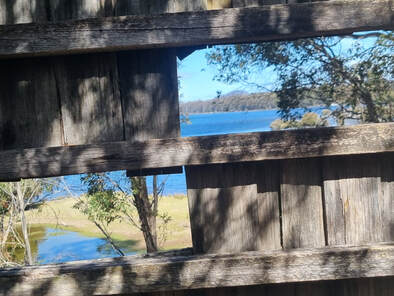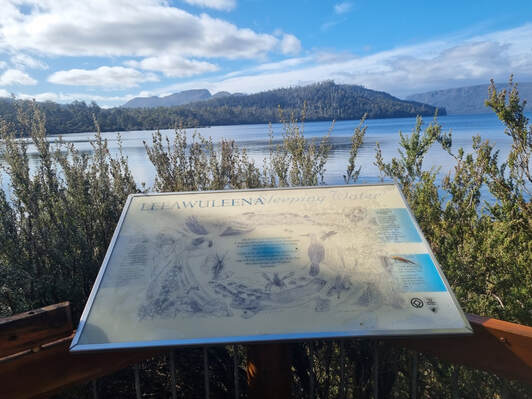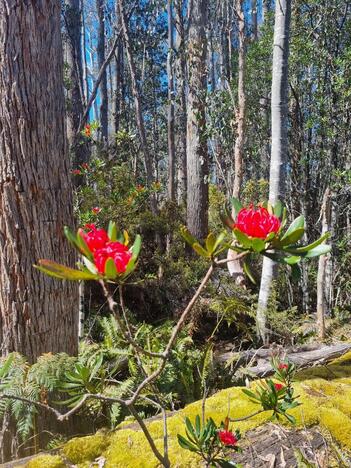 Matthew 2:13-23 When Mary and Joseph got to Bethlehem they had already been pushed around by the dictates of politics and power. They had to leave their home while Mary was heavily pregnant and walk for days just to be registered in the census, a means by which taxes were worked out and imposed. Their fleeing to Egypt was another part of that forced journey. We all live under the dictates of politics and power, some negotiating it better than others depending on our race, ethnicity, sex, gender, sexuality, privilege, education, wealth, place of birth, religion, health etc. Some learn to comply to the systems or use them to their own advantage, others rebel seeking to find an elusive freedom and others sink, suffer, and just try to survive. The biblical stories are told within the stories of politics and power, of how faith was forged and developed and lost and found again. Today’s story tells how faith was carried and protected, vulnerable and so fragile. As Mary and Joseph travelled to Egypt and then on to Nazareth, they literally carried their faith with them, in the form of their child and all the hopes for the world held in that baby. All the while avoiding the murderous and jealous powers that slaughtered all the children under two years of age around Bethlehem. What is the faith that you carry like? Is it strong and robust, sure and solid, or are you a bit more unsure about it? Perhaps what you carry is a mixture of faith and doubt? Can you imagine the doubts that plagued Mary and Joseph along the way as they fled trying to find shelter and food and work to survive, to keep their baby alive? Why is this happening to us? Did an angel really appear to us? Is our child really the Saviour of the world? Together they carried a mixture of faith and doubt held together with the threads of love. When we talk about keeping the faith we often mean holding on to our beliefs through thick and thin. We pull them together into creeds which we recite; creeds that reinforce our beliefs, which become sanctuaries from doubts, exercises to go through in our minds, like building muscles to become strong in the faith and we hang on to them against all the temptations and trials we go through. It can be exhausting - such a battle raging in the mind. Faith is not just what we believe in our minds, what we have learned in church, Sunday school or Scripture classes in school, or even in Theological colleges. Faith is lived through our whole body, through our hands and feet in actions, in our words and on our faces and gestures. Faith needs doubts to develop. Brian McLaren says that doubts are not the opposite of faith but rather complement each other. Doubts are necessary for a life to be lived with authenticity and honesty. If we ignore or avoid our doubts, if we don’t engage with our doubts, we may never grow in our faith. We may never grow into the fulness of love or discover life in its fulness, perhaps not experience a deepening awareness of God’s presence in all things. Paul, in first Corinthians 13:13 says, And now these three things remain: faith, hope and love and the greatest of these is love. No doubt for Mary and Joseph their journey was not driven by some well articulated statement of faith or creed of beliefs but by love: love for their child, love for each other, love for the world; more instinctual than intellectual, of necessity rather than choice. In Galatians 5:6b Pauls says, … the only thing that counts is faith working through love. Can there really be faith without love? I am coming to see that faith for me is living because of a dream, a mystery, a hope beyond comprehension and articulation, a glorious vision of the imagination, a longing, a thirst, an unknowable knowing; God revealed in a baby born to two loving faithful parents a long time ago. Above all faith in Jesus is a life that is lived in love.
0 Comments
 Matthew 3:1-12 Sunday 4 December 2022 Advent 2 "The voice of one crying out in the wilderness: 'Prepare the way of the Lord, make his paths straight.'" The voice of one calling out in the wilderness Julie and I spent the last two weeks travelling around Tasmania. Tasmania is an incredibly beautiful place. At times Julie described it like heaven, the beauty kept rolling out like an endless dream. We spent a lot of the time walking along beaches or on bush tracks, beside rushing rivers, under gushing waterfalls, around stunning lakes, through lush valleys and over steep majestic mountains, accompanied constantly by beautiful birdsong. While walking in silence with only the sounds of the bush, I found that lots of memories and thoughts came up: things and people that I had not thought about for a long time. I suppose I was alone with my thoughts rather than being distracted by so many things that happen in daily life. Some of these memories can be painful, but I found that they seemed to fall harmlessly away as I walked on. We walked through many National Parks. At one national park – the Franklin-Gordon Wild Rivers National Park I came across the following information notice. It stated: Aboriginal land… Not wilderness The Franklin River has only been seen as a wilderness since the arrival of Europeans. Before this, Tasmanian Aborigines had long viewed this land as something special – but not as wilderness. The land has been the foundation of their culture and its laws and traditions for over 60,000 years. For today’s Aboriginal community, its significance is just as strong. Aboriginal sites still found in this area are evidence of these close links with the land and allow today’s Aborigines to celebrate the continuation of their culture. There were three obvious things we noticed that tarnished our view of Tasmania as heavenly. The first was the large numbers of animals killed on the road: wallabies, kangaroos, paddy melons, echidnas, wombats and Tasmania Devils, all endangered species littering the roads, giving lots of food for scavenging birds. The second obvious thing was the destruction of the environment through mining and logging. I had last been in Tasmania forty years ago and did not want to go to Queenstown, but was surprised how much it had changed over that time. Corrosive Sulphur fumes from copper mine smelters had combined with endless rain to erode the soil from surrounding hill sides and leave it looking bare like the moon. It was good to see some recovery happening but still had enormous denuded areas of beige-brown barrenness. The greed of rich entrepreneurs was everywhere to be seen not just n the recorded history but before our eyes. The third obvious thing was the cruel convict history. Everywhere there were gaols and bridges and other government buildings and houses built by convict labour. Poor people, many from Ireland, transported to the other end of the world for minor crimes or political protest never to see loved ones again or the land of their youth. What was not obvious was Aboriginal sites. At recently renamed Leeawuleena (Lake St Claire) National Park an information sign stated – When they walked peaceably into Hobart town in January 1832, all that was left of the Big River nation, which had once numbered 400 to 500 people, were 16 men, 9 women and one child. After defending their country for nearly 30 thirty years, the Larmairemer people expected the ’peace and plenty’ promised them by the… (Government). Instead they were shipped to Flinders Island- far away from their homeland. Having read this, I could almost hear a voice calling out in the wilderness, a voice begging to be heard for over 234 years. This is home not wilderness. It seemed that the land was calling out, calling for justice for both land and dispossessed people. Wilderness and Voice Advent is a spiritual journey preparing us for Christmas but more than that, opening us to see the whole world in a different way, in the way of Jesus. This spiritual journey leads us through the wilderness. However, for us urban dwellers most of our spare time will probably lead us through the shops rather than to places where we can be alone with the world, with ourselves, our thoughts, and open to the voice of God. As I read the Scripture passage for today and reflected on my ‘wilderness’ experience, I thought of that sign which said ‘Aboriginal land…not wilderness’ and I reflected on one of the main stories in Australian news this week which was about A Referendum on an Indigenous Constitutional Recognition through a Voice to Parliament and how the first peoples of this land are calling out for a voice, to be heard at the highest level, in the constitution and laws of this country. Our local Federal member and Minister for Indigenous affairs Linda Burney gave an impassioned speech in parliament this week. She said, “Not everyone can have their voice heard. That is why we need a voice to Parliament. You learn more by listening than by talking and an Aboriginal and Torres Strait Islander voice is an idea whose time has come. We want to take Australia forward for everyone and will work with anyone who wants to take this journey forward to a better future.” When John’s voice is raised in the wilderness, he is not just calling us to repent of our own individual sin, but our collective sins against the beautiful world God has created and against the first nations of this land. As we listen for the voice of the baby Jesus crying in his manger let us listen closely to the cries for justice and inclusion, and for land, sea and skies calling out for us to repent of our ways and take Jesus’ way, to make God's path straight. |
AuthorMinister of Campsie Earlwood Clemton Park Uniting Church Congregation Archives
March 2024
Categories
All
|



 RSS Feed
RSS Feed
